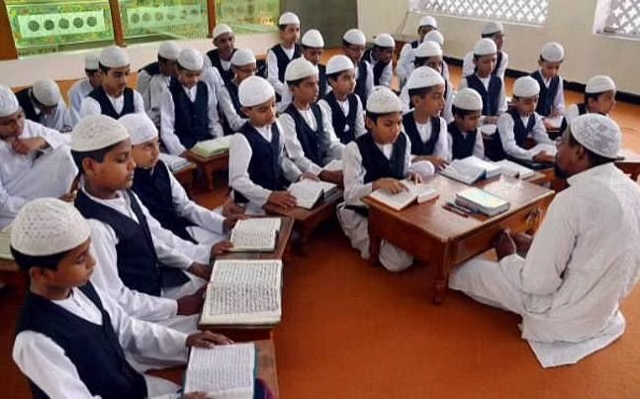Lucknow: The BJP Minority Morcha is set to conduct yoga camps in over 1,000 madrasas across Uttar Pradesh as part of the International Yoga Day celebrations on June 21. The initiative, being carried out under the theme “Yoga for All,” is facing strong backlash from Muslim leaders and religious scholars who see it as yet another attempt to impose cultural practices alien to Islamic tradition within religious institutions.
A key feature of the campaign is the initiative titled “Desh Ka Paigham, Pratibha Ko Samman,” which aims to recognise talented individuals from the minority community—honouring meritorious students, IAS and IPS officers, and those who have significantly contributed to the nation’s development.
Further deepening its outreach, the Minority Morcha will organise ‘chaupals’—informal community gatherings—outside places of worship including mosques, temples, churches, and gurudwaras. These gatherings aim to promote awareness of BJP’s development work and central welfare schemes.
In addition, a message-driven initiative titled “Alpsankhyako ka ye paigaam: Modi ke saath Musalman” (Minorities’ Message: Muslims are with Modi) is being rolled out across major cities in Uttar Pradesh to build greater rapport within the Muslim community.
The central event of the campaign is being held in Lucknow on June 12, attended by professionals including doctors, teachers, engineers, and lawyers. BJP Minority Morcha president Basit Ali reportedly said that programmes would be held in all 403 constituencies, targeting an equal number of madrasas. Each event will begin with yoga sessions and be followed by district-level programmes involving maulanas, students, and local residents.
However, these moves have sparked intense criticism. Prominent Islamic scholars and community members have strongly opposed the imposition of yoga in madrasas, arguing that such practices—deeply rooted in Hindu spiritual traditions—do not align with Islamic beliefs. They emphasize that only Islamic scholars and Shariah authorities have the right to guide madrasa activities.
“This is not about yoga alone. It is about repeated state attempts to interfere in our religious institutions and practices,” said a senior Scholar from Deoband. “Whether it’s the survey of madrasas, changes in curriculum, or now yoga sessions—these are all encroachments on our religious freedom. Our Constitution grants us the right to practice and propagate our faith freely, and no political party or government can dictate what happens within our faith-based institutions.”
Community leaders also pointed out the targeted nature of these campaigns, stressing that such initiatives are not imposed on other religious communities with equal vigour. They view it as part of a larger strategy to homogenize cultural and religious identity under the guise of development and integration.
“The BJP’s Minority Morcha should focus on real issues like education, safety, and economic empowerment of minorities rather than forcing cultural practices upon us,” a madrasa teacher from Kanpur stated. “We have our own physical and spiritual disciplines, and they are deeply rooted in our faith.”
As the campaign unfolds, many within the Muslim community remain skeptical, seeing it as more political posturing than genuine inclusion.




